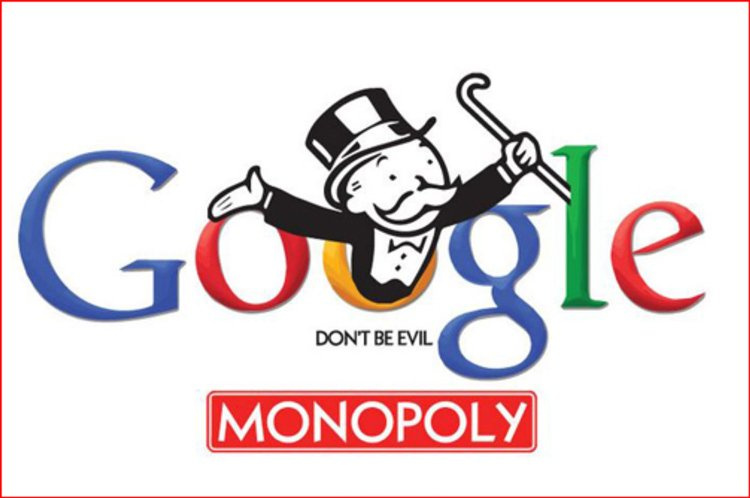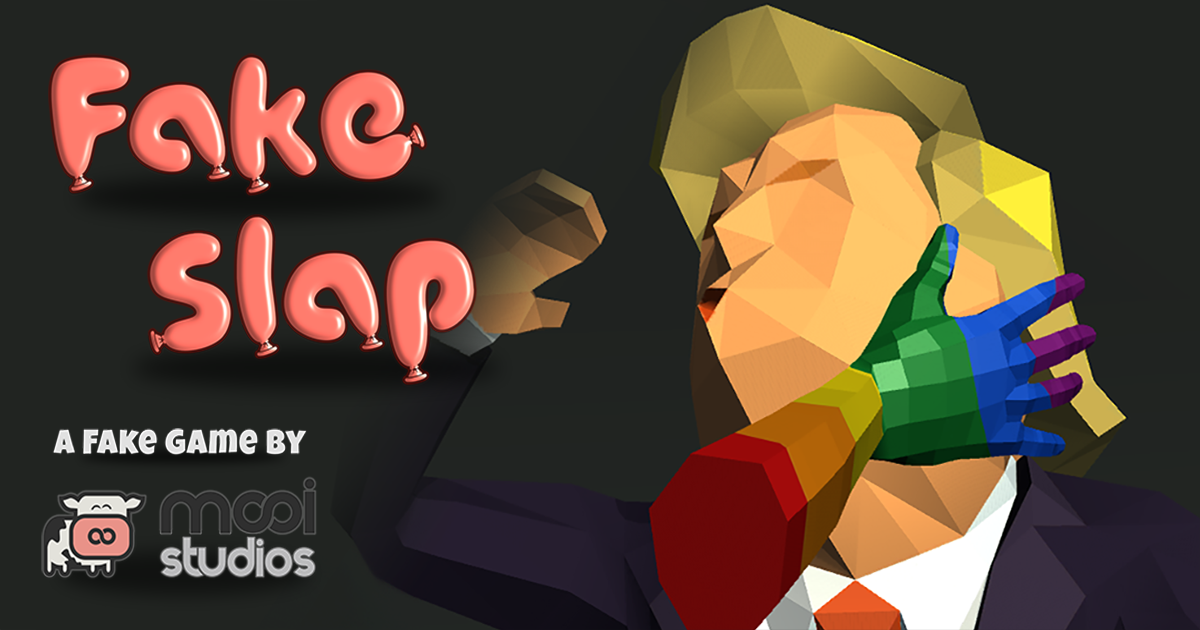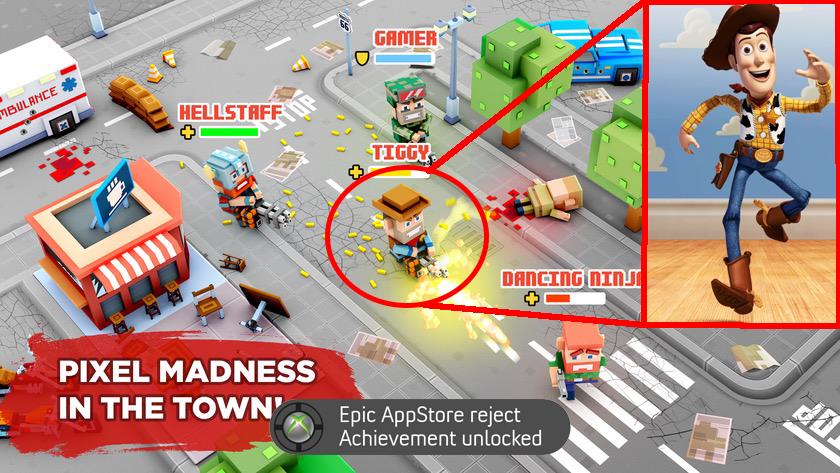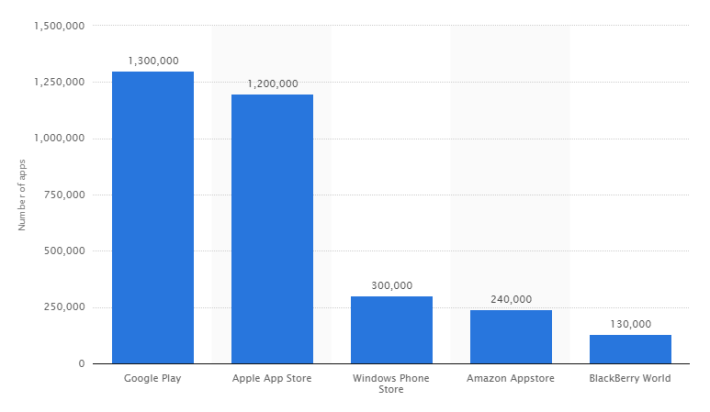Google and Apple against indie developers

TL; DR: technology giants Google and Apple dominate the app store market, because they have almost no competitors. Therefore, they provide indie developers with very little support. Your game or application can suddenly be deleted, and you can do almost nothing with it.
Our game Fake Slap! hung up on Google Play for violating the Violence Policy . We received an automatic letter informing you that the game is suspassed, and - bam! She disappeared. For us, this was a serious shock, the game has been on Google Play and the App Store for more than a month without any problems. The violence policy states: "It is forbidden to publish applications depicting unpunished violence or other dangerous acts." The following are some examples, such as: instructions for hurting yourself, documenting their attacks by terrorist groups, making explosive devices and other weapons, and realistic images or detailed descriptions of violent acts. Our game is exactly none of this does not match. Yes, our game is about politics, and its character is the president of the United States, but it definitely does not apply to the listed types of violence.
The important thing is that blocking (suspension) of an application is considered a “strike” and affects the reputation of a developer account. Here's how it is formulated: "Repeated or serious violations of these rules and the Software Distribution Agreement ... will lead to the deletion of the relevant accounts." You can not even return to your game to understand what was wrong - it is completely blocked. Needless to say, we are angry. Imagine that you lose not only your developer account, but all your Google accounts - from email, Google Drive, YouTube, in general, from everything. Problem. We were quick to state an appeal, and were confident that the game would be instantly restored, because some mistake had occurred. We decided that someone didn’t like the idea of the application, and he marked the game, which started the whole automatic process. Google will understand its mistake and return the application, right?
')
An automatic response to the appeal stated that we will receive a response within 72 hours. We suspended all game marketing plans and waited. Then they waited some more. After 11 nerve days, we finally got an answer - our appeal was not accepted. We insisted again and again for a couple of weeks, and continued to receive automatic responses rejecting our appeals. At that moment, we had already lost hope - all reactions were detached and indifferent. The correspondence had no meaning. I decided to contact journalists to tell them our story: maybe someone would be interested in a story about how Google Play deleted a political game. I corresponded with Colin Campbell from Polygon . I used to read his articles and thought that he would be interested. After telling our story, he contacted Google’s press department and made a statement. After about 5 hours, we "mysteriously" received a letter from Google, informing us that the game would be restored, as much as a month after the deletion. Coincidence? I do not think.

Our game is Fake Slap! removed from Google Play
Restoring the game was, of course, good news, but we felt disgusting. Why did we have to find a journalist for Google to take us seriously? I began to look for other people who faced similar problems, and was shocked by how often this happens. A solid number of games and applications are automatically removed from the app stores (mainly from Google Play), even without warning and the slightest chance of correcting errors. Some developers are lucky, but it seems that many do not even manage to get through automatic messages and they continue to receive the same letters with the rejection of appeals. All developers know that getting to a living person on Google is almost impossible. Apple is considered a hard nut during the initial approval process (many developers don’t even try to publish to the App Store), but if a problem occurs after an update is rejected or you can usually always find a live interviewer.
There are many reasons for blocking and deletion - from infringing trademark rights for using words like “Flow” (in the case of the user Reddit JakeSteam), “Candy” or “Saga”, to spam, pornography and violence.
In the case of Hau Nguyen, the Dodge Dodge game was originally called Circles Dodge. She was on Google Play for six months (she had tens of thousands of downloads and hundreds of reviews), but was suddenly removed because of the “violation of the rules on spam content policy”. Google rejected appeals Howe automatic letters. He could not get an answer about what the game considered to be spam, and after talking with fellow developers on Reddit , he decided to publish the same game under a different name. But of course, he lost all downloads and reviews for the previous version, and put his developer account at risk (2 “strike” and you will fly out!).
Two applications were removed from TK-Squared , LLC: their Banger and Tuxedo programs showed websites with streaming radio playback (of rock and classical music, respectively). The reason for the deletion was “violation of the rules of paid and free services of the Content Policy”. This meant that they were accused of trying to make money through a third-party application (not through Google Play), although they did not make any money at all. One of the streaming radio stations included in the list of applications, regardless of them, collected donations on the radio in her college, but it had no connection with TK-Squared. In the case of the Banger application, after weeks of correspondence trying to prove to Google that the company does not require money, is not charitable and does not violate the policy, the appeal was finally accepted. In the case of Tuxedo, Google stopped responding after two months of correspondence. The company has sent an update and re-published the application. Here's how the developers describe from communication with Google: “The answers (on appeals) never referred to what we said in the previous answer and in the discussions earlier. It baffled. We tried to communicate in the same manner or find another way to respond, and by the second month of correspondence we realized that we were talking to a bot, because nothing we said or did did not lead to meaningful answers from Google. ”
John (he asked not to mention his full name, because the “big brother” (Google) is following), an experienced application developer from the United States, completely deleted the developer account. Google removed three different applications that it developed for customers for violating the policy of fraud (posing as another person) and the policy on pornography (he claims that there was nothing like this). After that, his account with 120 applications was completely deleted. It took him three months to appeal to return the account and a few more months to re-send all applications to the store. Now, Google automatically rejects all applications sent to them without a preliminary agreement between him and his clients on the pretext that he pretends to be their organization. He says that it takes weeks to wait for Google approval. His quote: "As if to sell every apple I need to ask permission from the gardener!"

Exp3D game: deleted three years after publication in the store
Exp3D 's open source game Adrian Couréges (Adrian Courréges) was suspended three (!) Years after publication for violating the metadata allocation policy. He was still lucky, after the appeal, the suspension was changed to delete, so he could just publish the game again, saving all downloads, reviews and users.
The Reddit widget application of the user Reddit wrayjustin fell asleep for impersonating another person / misrepresentation after he removed it from the publication. The application has been in the store since 2010, it has never been updated or changed. The user deleted it because he had heard about aggressive “strikes” for violating the politician. For this he was put to sleep.
As I mentioned above, it seems that Apple has fewer stories with rejection applications. Apple is known for having “specific” standards for content published on the App Store. Therefore, the deviation of most games and applications occurs in advance. Last year there were several articles about remote political games, for example, the Palestinian political platformer Liyla and the Shadows of War , the political-satirical games of Everyday Arcade and others. Many developers complain about the annual hundred dollar fee from developers and that Apple obliges development service providers to open an account for each client ($ 100 each).
Pixel Arena Online update of Ascella Mobile Inc. rejected for violation of rights to the trademark. The character, who was present in the game for several months, unexpectedly reminded someone Sheriff Woody (in fact, the game character is a voxel cowboy, similar to any cowboy). The company had to remove it and all related marketing materials.

Pixel Arena Online: Is Tiggy very similar to Woody?
Gereon Steffens had an assistant application for Android: Netrunner. It is obvious that in the description there should have been the word “Android”, which is not related to the operating system. For this word, the application was rejected several times. Fortunately, the appeal of Hereon was always accepted, but this did not prevent the constant rejection of updates.
Such stories have been heard for many years. A quick search by Reddit development teams can show you how frequent they are. Most of the deletions and suspensions are most likely fair and are a violation of policies, no matter how ridiculous or vague they may seem. But in many cases they are completely unfair, and indie developers and small companies are practically helpless against such locks. More importantly, in most cases they cannot even understand the reasons for the punishments and discuss them in order to avoid problems in the future. Moreover, many developers believe that large companies in some way exploit the system to prevent competition, because small businesses can not afford the costs of lawyers. For small companies that depend on application revenue, this is a serious problem.
But why do technology giants provide such poor support to developers and content providers? Developers of games and applications, and so work with might and main, trying to achieve recognition in this oversaturated market. So why do app store owners make their lives even harder for them? Yes, and take in the process of 30% of their earnings? Answer: because they can.
Both Google (or the parent company Alphabet), and Apple, of course, are private companies that can choose who to let into their stores, but louder than the complaint that they have become real monopolies in their sectors. This means that they can treat developers (and anyone) as "accept the conditions or fail." The New York Times and Business Insider editorials recently demanded antitrust laws against technology giants, claiming that they impede competition and discourage innovation and personal freedoms. Both Google and Apple completely dominate the app store market - 76% of all apps are published in their stores (according to statista.com as of March 2017). The Windows and Amazon stores are far behind them and cannot represent any real competition to any of the giants. The combined AT & T and Time-Warner caused much more public attention, while having a smaller percentage of the market, so why nothing is being done in relation to the tech giants and their exploitation of their own power? This is exactly why antitrust laws are needed: first of all, it was thanks to him that Google arose (in the 90s, a lawsuit against Microsoft allowed Google startup to offer an innovative search engine). For Google, the days are long past when the motto “Don't Do Evil” was fair.

Number of applications available in leading app stores for March 2017 ( Statista )
In January, Reuters reported that a US court ruled: iPhone App users may sue Apple for monopolizing the iPhone App Market, which leads to higher prices and reduced opportunities for developers. This was important news for consumers and developers, but did iPhone users sue Apple? Will this be a legal case for Android users? I doubt it. It seems to me that changes can appear only after the intervention of the state or public pressure on the technological giants. It is clear that there is a huge need for changes in the relationship of the monopolists of the app stores with content creators. It is necessary to break the monopolies and open up markets for fair competition in order to give small developers (and other app stores) a real chance.
Source: https://habr.com/ru/post/331404/
All Articles